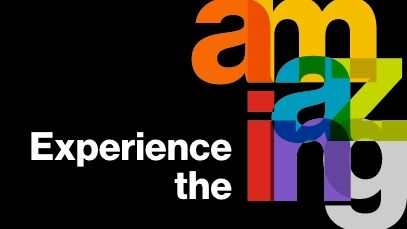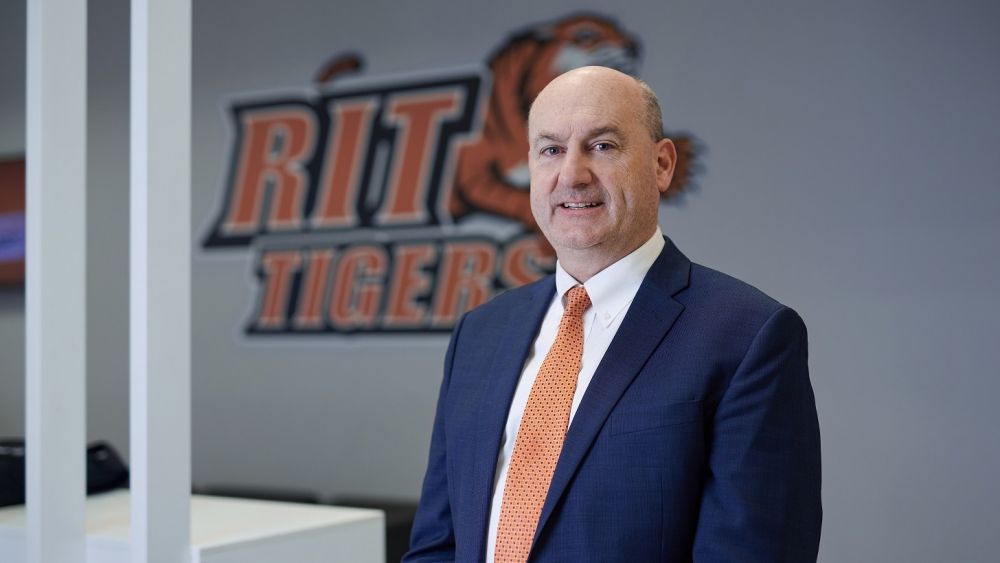The tech revolution has accelerated the communications revolution!
photo credit: Mislav Mesek
Interview with Bob Finnerty, RIT's Associate Vice President of Communications
The tech revolution has accelerated the communications revolution!
We have had the pleasure of welcoming RIT's top people in Marketing & Communication to both of our campuses in late March. The main purpose of the visit was (finally) to meet some of the team members in person, but also to discuss our overall marketing & communication efforts and share our best practices. We used that opportunity to talk to Bob Finnerty, RIT's Associate Vice President of Communications about his profession and communication at RIT in general.
With a 30+ year career in strategic communications and marketing, Bob started his career (as a lot of communication experts do) working in journalism. He is very well familiar will all aspects of the trade and editorial office since he's done it all - from working as a journalist to becoming the metro editor and overseeing a team of more than 50. In 2002, Bob joined RIT, and was named the university's first Chief Communications Officer.
Why is communication so important?
Communication connects people. It is the bridge that informs and engages key audiences and stakeholders. An organization can have all the best strategic plans in the world, or the best products and services. But if it is not communicated effectively, it will be lost. Good communication drives emotions and activates people if done well.
How has 4th tech revolution affected communication?
The tech revolution has accelerated the communications revolution! I have seen the complete explosion of digital and social media during my career. It allows communicators to easily disseminate their messages into the world and create engagement. And the best part is you can track your work with analytics to see what is working and what is not. You can create a nice feedback loop with your audience. You are not just guessing on the effectiveness of your work. Consumer habits are constantly changing. Staying on top of the trends (e.g., what's the latest with Facebook, Twitter, I-Gram, or TikTok) can be a full-time job. Visual communication (video, photo, graphics) is exploding. And the way people read and consume information has evolved. I come from a print background. And even print still has a place in today's digital world if you do it right. We are very proud of our print products at RIT because they stand out and have shelf life. Staying on top of trends is what keeps it fun and interesting. I believe this is just the tip of the iceberg with technology and communication. And with RIT having "tech" in its name, our students and alumni are always pushing us to be early adapters. It keeps us fresh and ahead of the pack.
How did you end up in communication?
I earned a bachelor's degree from Purdue University in communications, with a concentration in journalism and minor in business. The timing was right to leave newspapers in the early 2000s. I was very familiar with higher education because I had covered it as a journalist, and I always appreciated working with university public relations teams. I always tell people I would not have left journalism at that time for PR. But there was one exception: going into higher education. Higher education is such a diverse field and it's all about promoting knowledge. I could also see that RIT was on the rise and I wanted to be part of an organization that was growing and had momentum.
Today, I am responsible for promoting and protecting RIT's reputation via content strategy (what we call owned media), media relations, and social media. I advise the RIT president and administrative team on internal and external communications. I have had experience working with three university presidents aligning communications and marketing messages with strategic planning.
Chief Communication Officer sounds very appealing and many aspiring communicators hope to achieve this position someday? Is it as glamourous as it sounds?
It's a fun job with plenty of variety. We are involved with all the major university initiatives. We have a seat at the table with the key decision makers (this is a must). And there is great satisfaction in strong storytelling. Glamourous? Only if you like to juggle multiple projects. I would also be remiss if I did not mention crisis communications. That's means having a plan and being available 24/7, 52-weeks per year. If something happens at 11:59 p.m. on New Year's Eve, you need to be ready to drop everything. I have our crisis plan with me at all times (including on family vacations). That's the job. And I love it :)
What is the best and what is the worst aspect of this job?
The best aspect of the job is the diversity of the work. One minute you are working on a presidential speech. The next minute you are talking to a professor about research that will make a positive difference in the world. Then you are talking strategy with the athletic director about sports. And then it's on to talk about a social media campaign … You are always engaged with really interesting and smart student, faculty and staff. There is no shortage of storytelling at RIT. Worst aspect: Triaging all the email :)
What advice would you give to all future Communicators out there?
Be curious, inquisitive. Ask questions - lots of questions, including of those in power (they will respect you more). Read, read, read. This means news, pop culture, industry trends, fiction and non-fiction books. Write, write, write. This means long-form stories, blog posts, or social media posts. This will build your portfolio. Continuous education is key. I went back for my master's degree in my 40s. And today, it is all about IMC - integrated marketing and communications. The two fields/disciplines have completely mashed up, and that is a good thing. Finally, find a good work-life balance. That's why I will end this right here so I can start my weekend and enjoy the start of Spring :)










